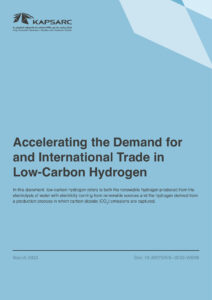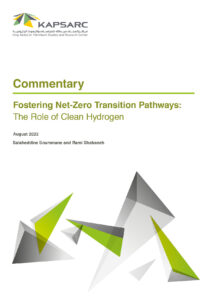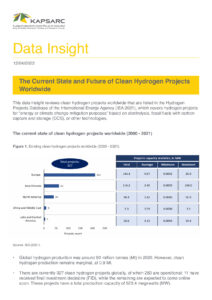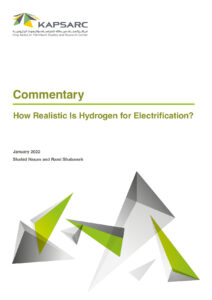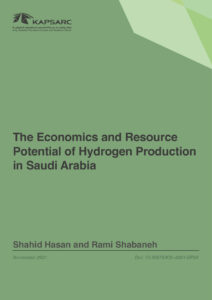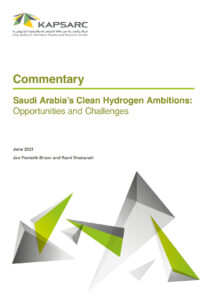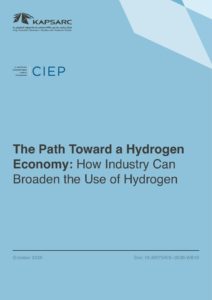Hydrogen is currently perceived as an energy vector: one that facilitates energy storage and can be used in the production of synthetic fuels and several other uses, making it an essential component of the circular carbon economy (CCE). It is a potential solution in reaching climate goals and decarbonizing hard-to-abate sectors like industry, buildings, and heavy-duty transport.
Comparable to the successful growth of the global liquefied natural gas (LNG) market over the last four decades, countries like Japan, Australia, the United States, Germany, and Saudi Arabia are eager to accelerate the creation of a comprehensive hydrogen economy.
The Kingdom, as part of its Vision 2030 program and its CCE ambitions, is strategically situated between major demand markets in Europe and Asia where it can leverage the nascent hydrogen economy as a potential tool to successfully diversify its economy and become a player of strategic importance in this space.
The goal of this project is to:
- Examine the potential of hydrogen demand beyond the industrial sector (transportation, power generation, storage mechanism for renewable energy, etc.).
- Understand international developments like possible export and import markets in the context of global decarbonization policies and technologies.
- Understand domestic policy developments in Saudi Arabia to exploit global hydrogen markets and promote domestic industrialization.
- Research the full value chain of hydrogen in the Kingdom from production, carbon capture, utilization, and storage (CCUS), consumption, exports, and its critical role within the circular carbon economy.

